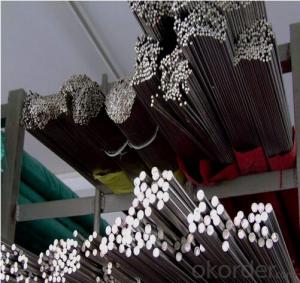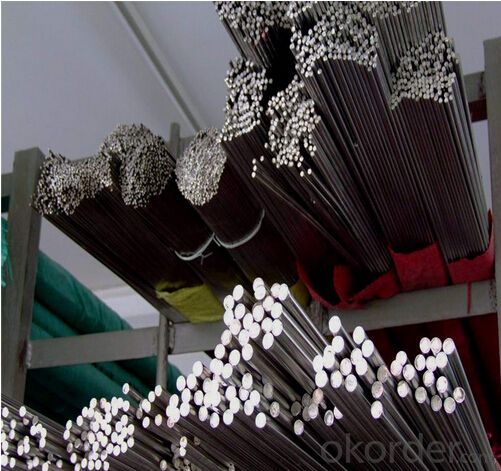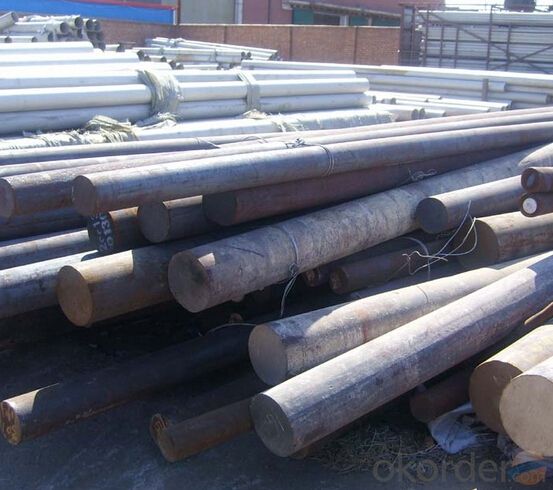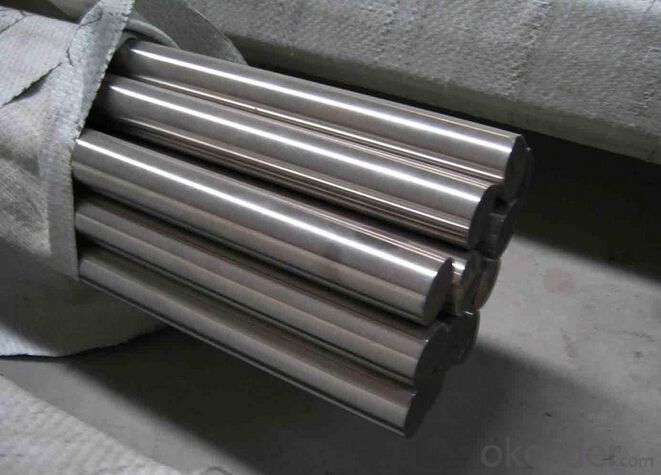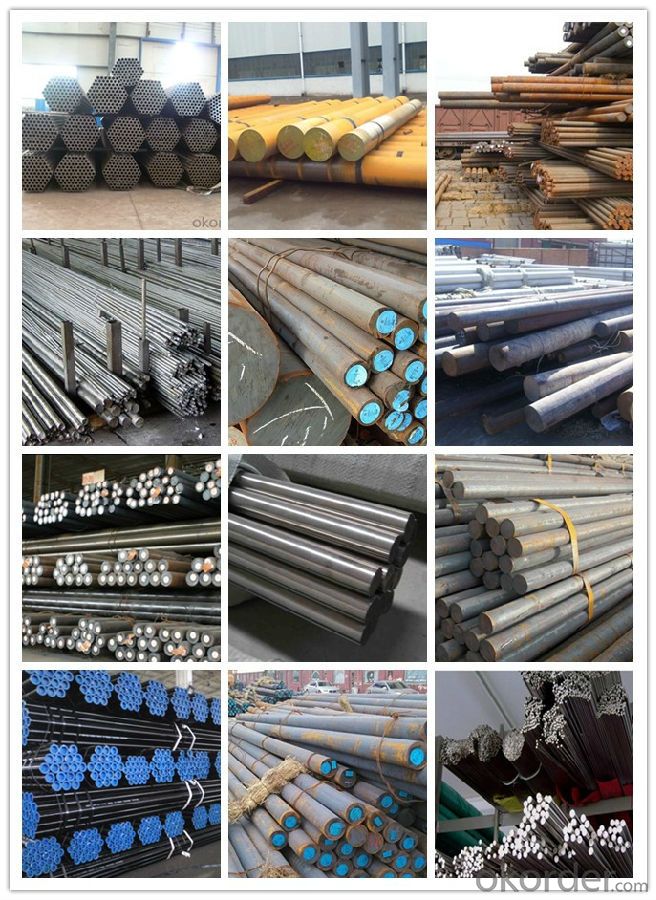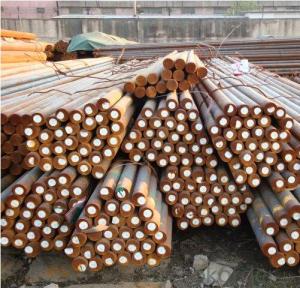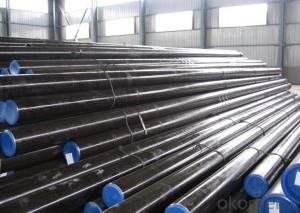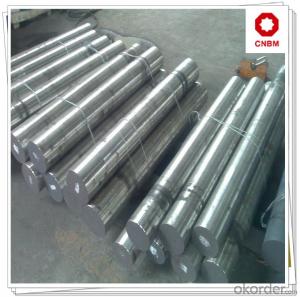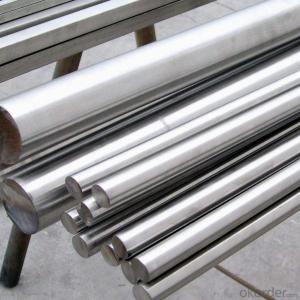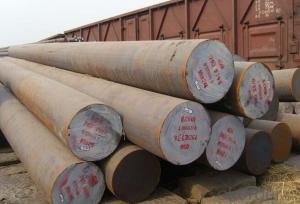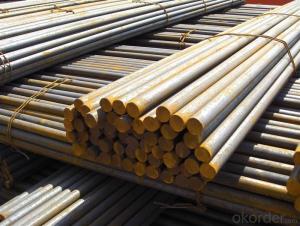Special Steel SAE1020 Alloy Structual Steel Round
- Loading Port:
- China main port
- Payment Terms:
- TT OR LC
- Min Order Qty:
- 30 m.t.
- Supply Capability:
- 10000 m.t./month
OKorder Service Pledge
OKorder Financial Service
You Might Also Like
Specification
Product information
Grade: | Carbon or alloy |
Dia.: | 10mm~1200mm |
Length: | Random or fixed as required |
Standard | GB,ASTM,JIS,BS |
Out Side Coating | Bare outside |
Ends | Plain ends with color painting |
Packing | Loose bundle |
Delivery | By container/train/lorry |
Third Party Inspection | SGS/BV/LORDS |
Delivery time | 7 days Min. |
Applications:
1. It is mainly used for manufacture of cold-work dies, punches, cold cutting scissors, drill bushes, gauges, wire-drawing dies, coining dies, draw bench boards, drawing dies, thread rolling dies, etc. with high abrasive resistance and small shock load.
2. It is used for processing of cutters made of materials which are not hard.
3. It is used for plastic moulds with high abrasive resistance and long service life.
Product show
Workshop show
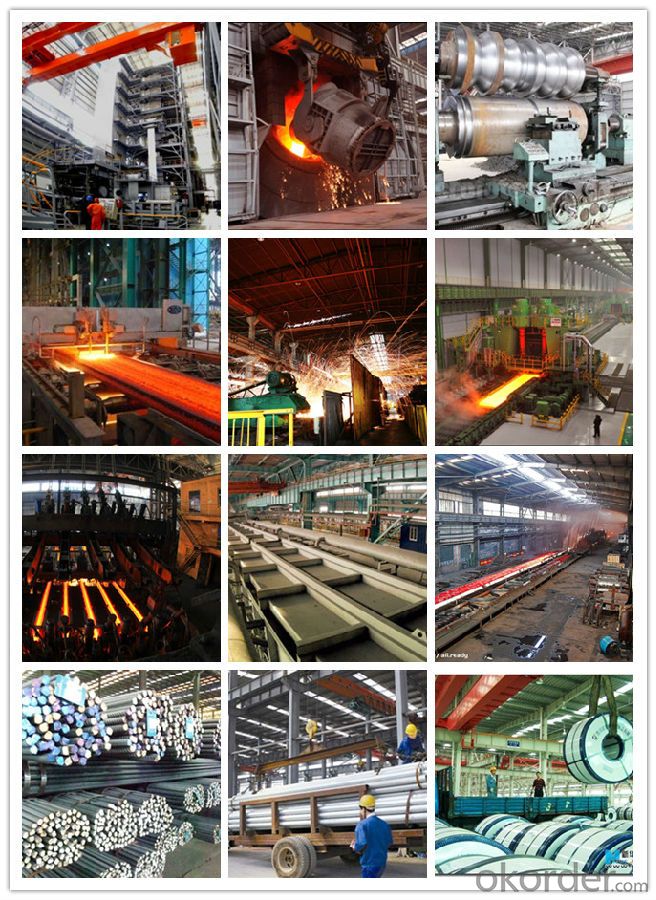
Shipping
1. FedEx/DHL/UPS/TNT for samples, Door-to-Door;
2. By Air or by Sea for batch goods, for FCL; Airport/ Port receiving;
3. Customers specifying freight forwarders or negotiable shipping methods!
Delivery Time: 3-7 days for samples; 5-25 days for batch goods.
Payment Terms
1.Payment: T/T, L/C, Western Union, MoneyGram,PayPal; 30% deposits; 70% balance before delivery.
2.MOQ: 1pcs
3.Warranty : 3 years
4.Package Informations: 1) EXPORT, In 20 feet (GW 25 ton) or 40 feet Container (GW 25 ton)
2)as customer's requirement
Why choose us?
(1) The leading exporter in China special steel industry.
(2) Large stocks for various sizes, fast delivery date.
(3) Good business relationship with China famous factories.
(4) More than 7 years steel exporting experience.
(5) Good after-sales service guarantee.
- Q: What are the different alloying elements used in special steel?
- Some of the different alloying elements used in special steel include chromium, nickel, molybdenum, vanadium, tungsten, and cobalt. These elements are added in varying amounts to enhance the steel's specific properties such as corrosion resistance, strength, hardness, and heat resistance.
- Q: What are the applications of special steel in the marine sector?
- Special steel, also known as marine grade steel, offers a wide range of applications in the marine sector. One of the key uses of special steel in this industry is for shipbuilding. Special steel is highly resistant to corrosion, making it ideal for the construction of ships and other marine vessels that are constantly exposed to harsh weather conditions and saltwater. Another significant application of special steel in the marine sector is for offshore structures. Offshore platforms, such as oil rigs and wind turbines, require materials that can withstand the harsh marine environment, including corrosion, high pressure, and extreme temperatures. Special steel is known for its exceptional strength and durability, making it a preferred choice for these structures. Additionally, special steel is also used in the manufacturing of marine equipment and components. For example, propeller shafts, anchor chains, and underwater pipelines are often made from special steel due to its excellent mechanical properties and resistance to corrosion. Special steel is also used in the production of marine engines, ensuring reliable performance and longevity in marine applications. Furthermore, special steel is utilized in the construction of port infrastructure, such as piers, docks, and harbor structures. These structures need to withstand the constant exposure to sea water, heavy loads, and dynamic forces, making special steel an ideal material choice for their construction. In conclusion, the applications of special steel in the marine sector are numerous and vital. Its corrosion resistance, strength, and durability make it an essential material for shipbuilding, offshore structures, marine equipment, and port infrastructure. The utilization of special steel ensures the longevity and reliability of marine assets while operating in harsh marine environments.
- Q: How does special steel contribute to the transportation sector?
- Special steel contributes to the transportation sector by providing high-strength and lightweight materials that enhance the performance, efficiency, and safety of vehicles. It is used in various components, such as engine parts, chassis, and suspension systems, to improve fuel economy, reduce emissions, and enhance durability. Additionally, special steel's corrosion resistance properties make it suitable for manufacturing components in harsh environments, such as marine and aerospace applications, further expanding its contribution to the transportation industry.
- Q: What are the limitations of special steel in certain applications?
- The limitations of special steel in certain applications include its high cost compared to regular steel, limited availability, and the need for specialized manufacturing processes. Additionally, special steel may not be suitable for applications requiring high temperature resistance or extreme corrosion resistance, as other materials like stainless steel or alloys might be more suitable.
- Q: How does special steel contribute to the aerospace safety?
- Special steel contributes to aerospace safety in several ways. Firstly, special steel is used in the construction of aircraft components such as landing gear, engine parts, and structural supports. These components need to withstand extreme stress, high temperatures, and corrosive environments, and special steel provides the necessary strength, durability, and resistance to ensure the safety and reliability of the aircraft. Secondly, special steel is utilized in the manufacturing of aerospace tools and equipment. These tools are essential for maintenance, repairs, and inspections of aircraft systems. The high strength and toughness of special steel ensure that these tools can withstand heavy use, enabling efficient and accurate maintenance procedures, ultimately contributing to the overall safety of aerospace operations. Furthermore, special steel is also used in the production of safety-critical fasteners and connectors in aerospace applications. These fasteners play a crucial role in holding aircraft components together, and their reliability is paramount for the safe operation of the aircraft. Special steel's excellent mechanical properties, including high tensile strength and resistance to fatigue, ensure the integrity and security of these fasteners, reducing the risk of component failure and enhancing aerospace safety. Overall, the use of special steel in aerospace applications significantly contributes to safety by providing the necessary strength, durability, and reliability required in critical aircraft components, tools, and fasteners.
- Q: What is the hardness of special steel?
- The hardness of special steel can vary depending on the specific composition and heat treatment process, but it is generally known to be significantly harder than regular steel.
- Q: Does special steel have any magnetic properties?
- Depending on its composition and treatment, special steel can indeed possess magnetic properties. The primary constituent of steel is iron, which is inherently ferromagnetic and capable of being magnetized. However, the magnetic characteristics of steel can be influenced by the presence of other elements such as nickel, cobalt, and various alloys. For example, stainless steel, which contains chromium and nickel, is typically either non-magnetic or only weakly magnetic. Conversely, materials like tool steel or high-speed steel may exhibit more pronounced magnetic properties due to their specific composition and heat treatment. Consequently, it is crucial to take into account the precise type of special steel and its alloying elements when assessing its magnetic behavior.
- Q: What are the applications of special steel in the renewable energy sector?
- The development and advancement of various renewable energy technologies heavily rely on special steel. Specifically, in the renewable energy sector, special steel is crucial for the manufacturing of wind turbines. Wind turbine components, including towers, generator frames, rotor hubs, and bearings, require high-strength and corrosion-resistant steel to withstand harsh operating conditions such as strong winds and exposure to moisture. The use of special steel ensures the longevity and reliability of wind turbines, thus promoting the growth of wind energy. Furthermore, special steel is extensively employed in the construction of solar power plants. Steel with excellent structural integrity, durability, and resistance to environmental degradation is necessary for solar panel frames, mounting structures, and support systems. Special steel provides these desired qualities, ensuring the stability and optimal performance of solar installations. In addition, special steel finds applications in the production of components for hydroelectric power plants. The construction of turbines, penstocks, and other hydraulic equipment requires steel with high tensile strength and resistance to corrosion caused by water and sediments. Special steel alloys possess these characteristics, making them ideal for hydroelectric power generation. Moreover, special steel is utilized in the manufacture of energy storage systems, such as batteries and fuel cells. These systems demand steel with outstanding conductivity, corrosion resistance, and mechanical strength to ensure efficient and reliable energy storage. Special steel alloys can meet these requirements, making them suitable for use in renewable energy storage technologies. In conclusion, special steel plays a vital role in the renewable energy sector by providing the necessary properties for the manufacturing of wind turbines, solar power plants, hydroelectric power plants, and energy storage systems. Its high-strength, corrosion-resistant, and durable characteristics enable the development of efficient and reliable renewable energy technologies, thereby contributing to the sustainable energy transition.
- Q: How does special steel contribute to the mining machinery industry?
- The mining machinery industry relies heavily on special steel, which provides exceptional strength, durability, and resistance to wear and corrosion. This specific type of steel is engineered to withstand the harsh conditions typically encountered in mining operations. In the mining machinery industry, equipment such as drills, excavators, loaders, crushers, and conveyor systems face extreme stress, heavy loads, and abrasive materials. Various parts of these machines, including buckets, tracks, cutting edges, gears, and hydraulic components, incorporate special steel components. The high strength and toughness of special steel ensure that mining machinery can endure the immense forces and impacts involved in mineral excavation, hauling, and processing. This durability extends the lifespan of the equipment, reducing the need for frequent replacements and minimizing downtime, resulting in cost savings for mining companies. Special steel's resistance to wear and corrosion is crucial in the mining industry. The presence of abrasive materials and corrosive substances in the mining environment can cause rapid deterioration of machinery components. However, special steel alloys are designed to resist wear and corrosion, enhancing the longevity and performance of mining machinery. Additionally, special steel allows mining machinery to operate efficiently and effectively. Its high strength-to-weight ratio allows for the construction of lightweight yet robust equipment, improving mobility and productivity in mining operations. The use of special steel also enables the design of complex components with intricate shapes, ensuring optimal functionality and performance. Overall, special steel is an essential material in the mining machinery industry. Its exceptional strength, durability, resistance to wear and corrosion, and ability to enhance efficiency make it a vital component in the design and construction of mining equipment. By incorporating special steel, mining machinery can withstand the challenging conditions and heavy-duty tasks involved in mining operations, ultimately contributing to increased productivity, reduced costs, and improved safety in the industry.
- Q: How does special steel perform in high-temperature hydrogen environments?
- Special steel is specifically designed to perform well in high-temperature hydrogen environments. It exhibits excellent resistance to hydrogen embrittlement and maintains its mechanical properties even at elevated temperatures. This makes it a reliable and durable material choice for applications in such environments.
Send your message to us
Special Steel SAE1020 Alloy Structual Steel Round
- Loading Port:
- China main port
- Payment Terms:
- TT OR LC
- Min Order Qty:
- 30 m.t.
- Supply Capability:
- 10000 m.t./month
OKorder Service Pledge
OKorder Financial Service
Similar products
Hot products
Hot Searches
Related keywords
